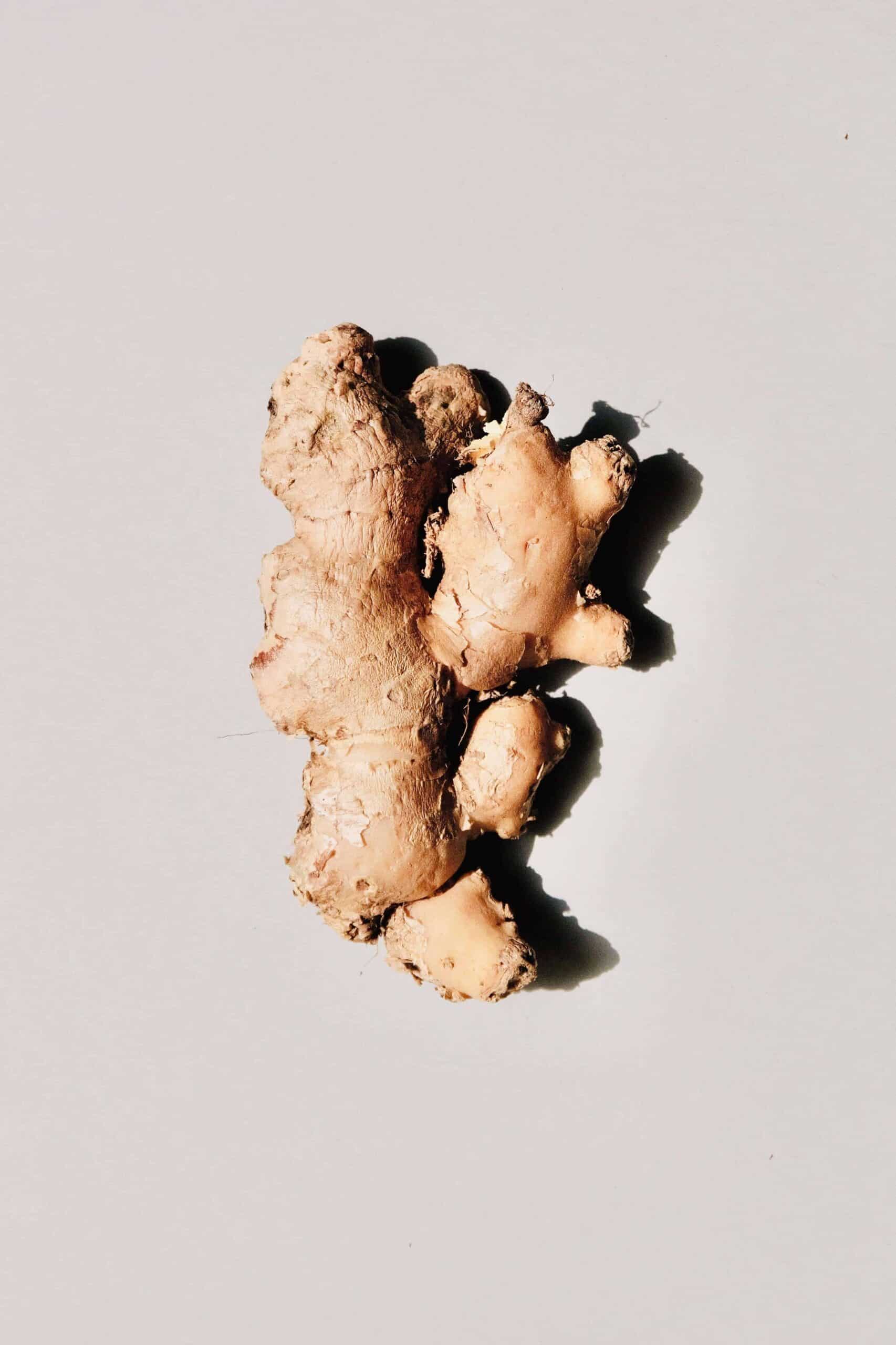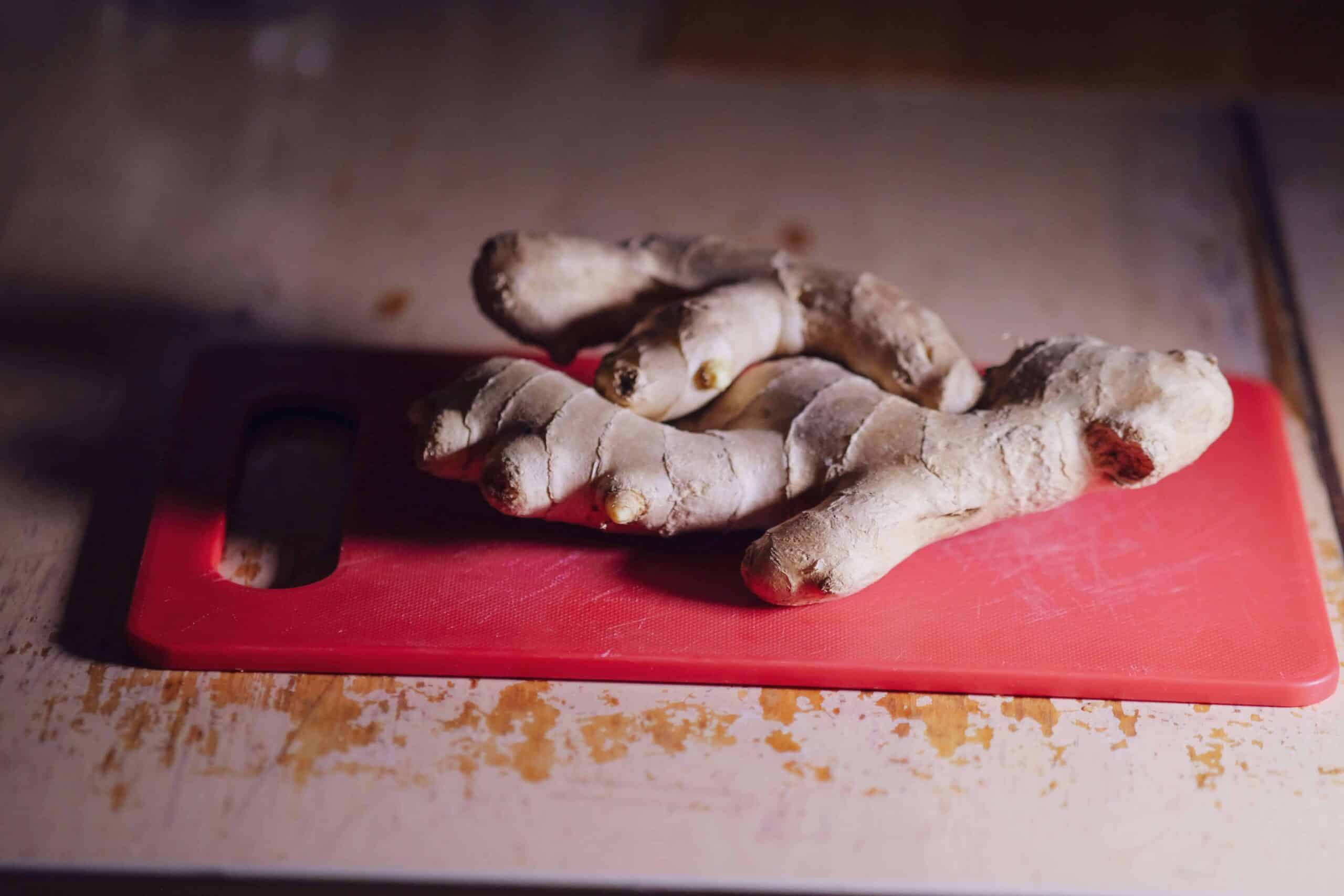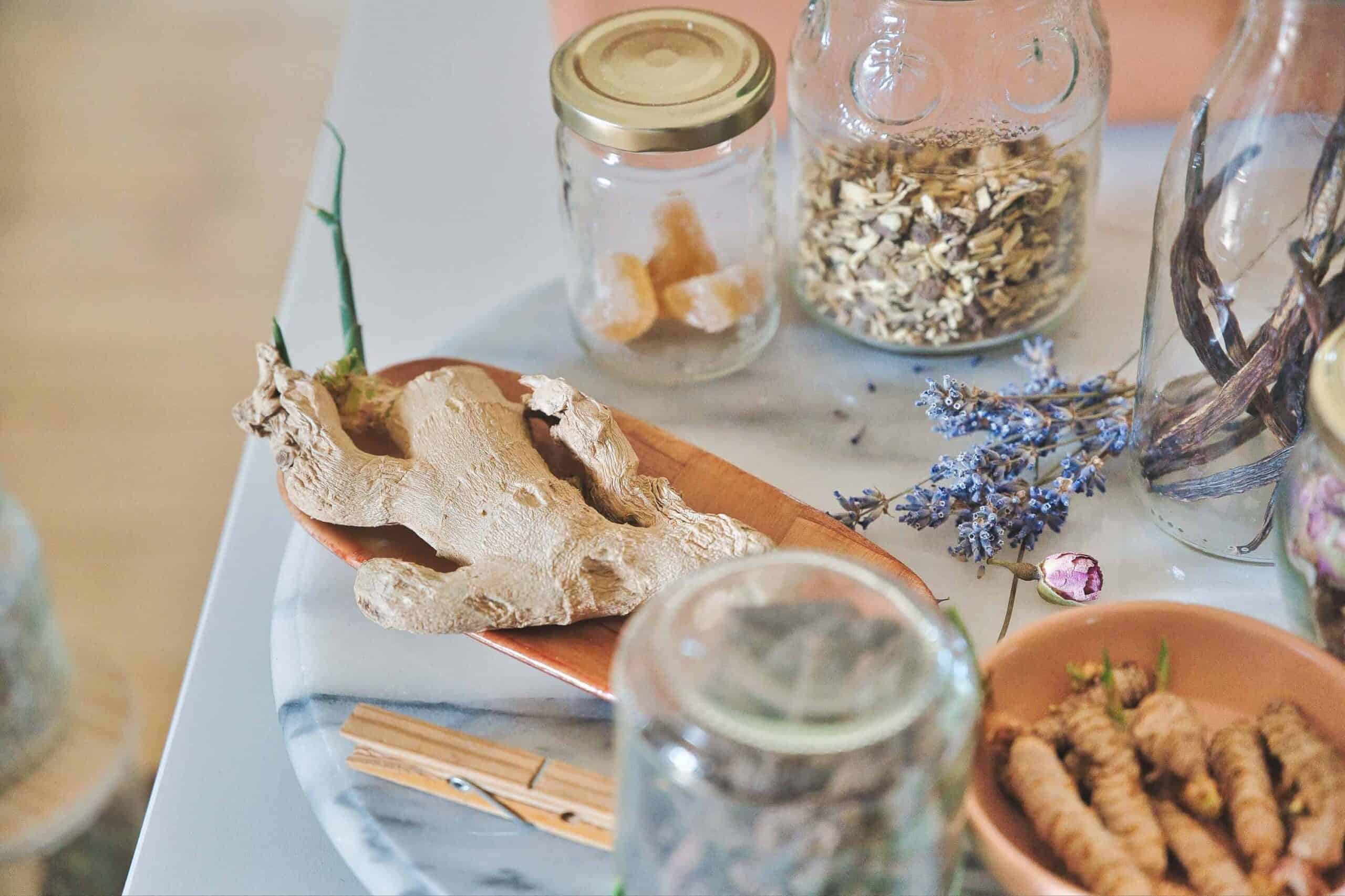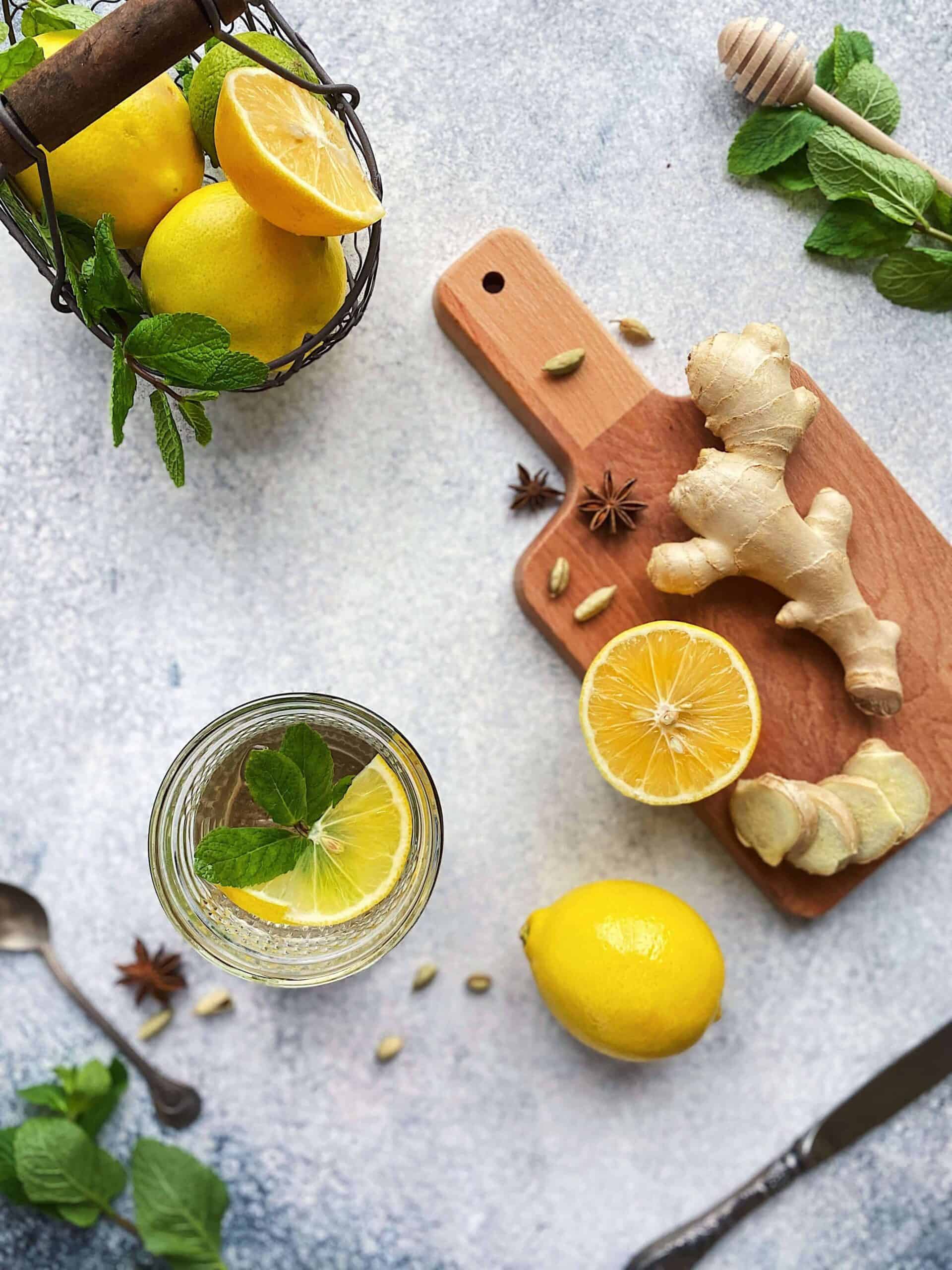If you are to name three spices you use in your recipes, can you exclude ginger from the list? Ginger is one of the most popular spices that add the right burst to your food. No matter in which country, you will always find ginger in the market and in a household. So, how do you know if ginger is bad?
Since it is a root plant, you don't get to see it that easily. But if you don't know how to detect it, you may not get a satisfactory result. So in this post, we will be talking about how to tell if ginger is bad and how you can keep it fresh.
How Long Does Ginger Last?

So, how long does ginger last? For one thing, there are plenty of types of ginger products available in the market. We buy different types for different purposes.
For example, if you need to prepare something with grated ginger, you can directly buy that instead of buying raw ginger. Now, all these different types have different lifespans.
Their freshness also varies, depending on how you store them. If you keep them in the fridge, they are most likely to last longer than while held in a storehouse.
The best way to know how long ginger will last is to check the manufacturer's details. You'll most likely find the manufacturing date/packaging date and the batch expiry date.
One should always use the ginger product as quickly as possible. However, there is some standard life expectancy of each type that we have mentioned below.
Count the dates from the mentioned packaging date. In case no packaging date is mentioned, you can count it from the date of your purchase.
These are the maximum periods for which you can store ginger. But it is always better to use it as soon as you can.
However, if you find ginger already rotten, you can cut that part and still use it. But if the root is completely rotten, it is better to discard it, for it may have many harmful effects on our health.
How to Tell if Ginger is Bad?
So, how do you know if ginger is bad? Of course, the ginger isn't going to come and tell you that directly. Or, you can't expect someone to sort that for you. You have to learn it on your own. Fortunately, it doesn't take much to know whether ginger is good or bad. There are some simple ways in which you can find out the condition of the ginger.

- Loss of Freshness
Everything loses freshness over time. And the loss of freshness tells a lot about your ginger's quality. Fresh ginger has a different smell and taste. So, when it loses its freshness, it is more likely to smell or taste less spicy.
So, how can you say if ginger has lost its freshness? First, you have to cut or crush some ginger. Now smell if the aroma is still there. If you find it, you can try tasting it once. There is no better way than a manual inspection. If you find the perfect aroma present in that, it is good to use in your recipes.
- Softness
Softness is another symptom that the ginger is losing its freshness. Gingers are the root that we eat. Hence, they are not soft at all. Softness means that the ginger has come in contact with moisture and has retained water. So, how do you check if it has got soft or not?
Well, it requires no special instruction. The one and the only way to check this is by pressing the root. If you feel it has got softness, the only choice is to reject it. However, if the softness is only in one part, you can still use it by cutting that portion out.
- Texture
The texture of ginger also tells a lot about its freshness. Most of you dealing with kitchen jobs in regular life know it from the moment you see something. But for those who are new to this, it can become a little confusing. Fortunately, you don't need to run a lab test for this.
Again all it needs is your simple touch. Fresh ginger has a different dry texture. But if you feel it wet or mushy when you touch it, the best decision is to reject it and move with another.
- Dark and Wrinkled
Did you think that only humans have got wrinkles and dark spot problems? Well, it's not the case. Any living being, including plant roots, can have the same problem. But the problem is that even though you can go to the parlor and hide marks, ginger cannot.
So, what does it mean? If you find dark or wrinkled spots on ginger, you wouldn't want to use it. Fresh ginger should have a new look without many bumps on it. So, when you see these, it means the ginger is not good at all. And when it's not, you know what to do.
- Color
You have seen fresh ginger before, haven't you? The color of the flesh of fresh ginger is light yellow. If the ginger is losing its freshness, it will start losing its color too. No, it won't become white, but the color will darken with each passing day.
If you find ginger having a darker yellow flesh, you should remember it as "not fresh." And if it has turned grey, you should entirely reject it. Most of the time, the color around the edge of rotting ginger has a darker shade.
These signs are pretty helpful in deciding whether the ginger is fresh or not. If you find any of these symptoms in your ginger, consider rejecting them immediately. However, if any particular part of ginger has rotten, you can still use it by removing that specific spot.
Can I Eat Moldy Ginger?
So, is it safe to eat moldy ginger? For one thing, anything stale is never a safe thing to consume. The same goes for your ginger too.
However, for some people, it depends on their guts. So, how does it go? Why should we not consume moldy ginger?
Rotten or moldy ginger can seriously damage your liver and can cause serious harm to your health. Moldy ginger contains a powerful toxin named Safrole. Safrole is harmful to our liver and can cause cancer as well. Therefore, one should always avoid moldy or rotten ginger.
Apart from this, old ginger can also cause upset stomachs or heartburn. Now, as we were saying, eating or not eating also depends on your guts.
What we meant is that many people use moldy ginger by eliminating the moldy part from it. For example, if you find ginger having a rotten part, you can cut it off and safely use it.
However, most restaurants follow a zero-mold policy. It means that if they find any moldy food or ingredient, they entirely reject the item. Therefore, whether you'll keep it or throw it away is your decision to make.
But, whatever you do, you should never forget that consuming moldy ginger can evoke serious health problems.
How to Store Ginger Properly?

Now you know everything about bad ginger. You can now easily find out good ginger from the moldy ones.
But, what would you do to protect your ginger from rotting or molding? The key is proper storage. After you buy the ginger root from your local shop or vendor, the first thing to do is storing it.
Here are some tips on how to store ginger properly. Remember that storing is not necessary if you are going to use these in one or two days. They will survive well without requiring much support.
But if you plan for a longer run, follow these methods:
- Store in a Refrigerator
Refrigerator storing is an excellent way to store gingers with the peel on. It will keep them fresh for a longer time. If you put ginger in the refrigerator, consider putting them in a freezer bag. While doing so, try to vacate the air from inside. It will keep the gingers crispier as well.
But what happens when you don't have a freezer bag? You can use the same brown paper to store gingers inside your refrigerator. You can also follow the same method for other ginger products, such as paste or ground ginger.
2. Store in a Freezer
Now, if you want to store it for even longer, consider keeping it in the freezer. It works pretty much the same way as the refrigerator. The only difference is that the freezer holds it for longer. It would be better to keep a peel of ginger in a freezer bag while storing it in a freezer.
When you need to use the ginger, you can take it out and grate it. There's another benefit of keeping ginger in a freezer as well. You can peel off frozen ginger more easily than regular ginger. Isn't it wonderful?
3. Dip in Spirit
Suppose you have cut a lot more ginger than you need. What will you do now? Will it be a waste after all? Not when you know how to store it properly. The previous methods won't help here that much. But there's another way as well. How about dipping it in spirit?
It may sound awkward, but it works pretty great, especially when you want to store peeled-off ginger. By following this method, you can easily keep that extra part for an extended period. So, how will you do that? It's pretty easy. Put the extra ginger in a small container or cup.
Now pour the cup or container with sherry or vodka and cover it entirely. It should keep the pieces fresh for several weeks. You can take it out when you need it and wash it off before using it. Also, take the pieces out when you see the mixture becoming cloudy. It may be a symptom of the presence of some mold or bacteria.
4. Put it Back in Soil
What can be a better place than home to keep people fresh and lively? The same goes for the plant too. Now, it's rather an innovative process that will keep providing you with gingers. So, what's your part in this? When you get some ginger root, you can put it in a pot and cover it with soil.
Soon, leaves will sprout out of the root. Now, when you need to use it, you can take root out, cut a portion, and then put it back again. No, it won't hurt the plant, and you can have a never-ending supply of ginger. All you have to do is keep it watered.
Benefits of Consuming Ginger

We have already discussed a lot about how you can detect lousy ginger, the problems it causes, and how to store ginger properly. Now, just let's get to something more substantial. Why should you eat ginger in the first place?
Okay, we understand you love the extra spice it brings to your food. But is that all? Indeed not, because there's a lot more to it.
Ginger has many physical or health benefits to name. We have tried to mention some of those below. It will help you gather some extra knowledge when you have already come so far.
Good in Winters
What can be a better time than winters to have a hot cup of ginger tea? Think of yourself sitting by the window and looking outside when the cool breeze takes dry leaves afloat. Apart from this romanticism, each sip can help you stabilize your body in the cold climate.
Ginger tea is an excellent remedy for cold and flu. It keeps your body warm and enables sweating, which is said to be good for health. Plus, it soothes a sore throat and relieves several pains, including headaches. So, if you are suffering from bad flu, don't forget to prepare a quick hot cup of ginger tea.
Good for Heart
According to CDC, 1 in 4 deaths is due to heart-related problems. With this increasing number of cases every year, it is a matter of great concern, indeed. Ginger has many properties that enhance your heart health. It prevents clotting in your heart's blood vessels.
High cholesterol is one of the most significant risk factors for heart attacks. The plaques formed in arteries block the blood supply to your heart, which then causes attacks. Ginger's antioxidant properties lower your cholesterol and reduce such risks.
Prevents Cancer
Ginger has very potent properties that block the growth of prostate, correctional, ovarian, and gastric cancers. With its anti-inflammatory properties, consuming ginger is good to avoid the risk of cancer.
Good for Weight Loss
A study shows that ginger can have a significant role in weight loss. Warm ginger water with squeezed lemon can boost fat dispersal and help you come in shape faster. You can also include green tea with ginger in your weight loss diet plan. You can see a significant difference if you drink it at least once every two days.
Lowers Blood Sugar and Pressure
High blood pressure and sugar are the two most prevalent comorbidities in our society. Consuming ginger can be beneficial for people having type-2 diabetes, high blood pressure, or both.
Treats Nausea
Morning sickness is common in many people worldwide. Ginger, in this case, can be a huge help. Ginger's antioxidant properties relieve built-up gas in the intestines. It can also ease seasickness or chemotherapy-related nausea.
Conclusion on How do You Know if Ginger is Bad
Ginger plays a significant role in your recipes. It adds that extra crisp which brings 'wow' to it. But moldy ginger can do just the opposite.
Now that you know how to tell if it is bad ginger, it'll be easier for you to find out. With all that knowledge, you can go to the market freely and shop like an expert.
More Posts for You:
